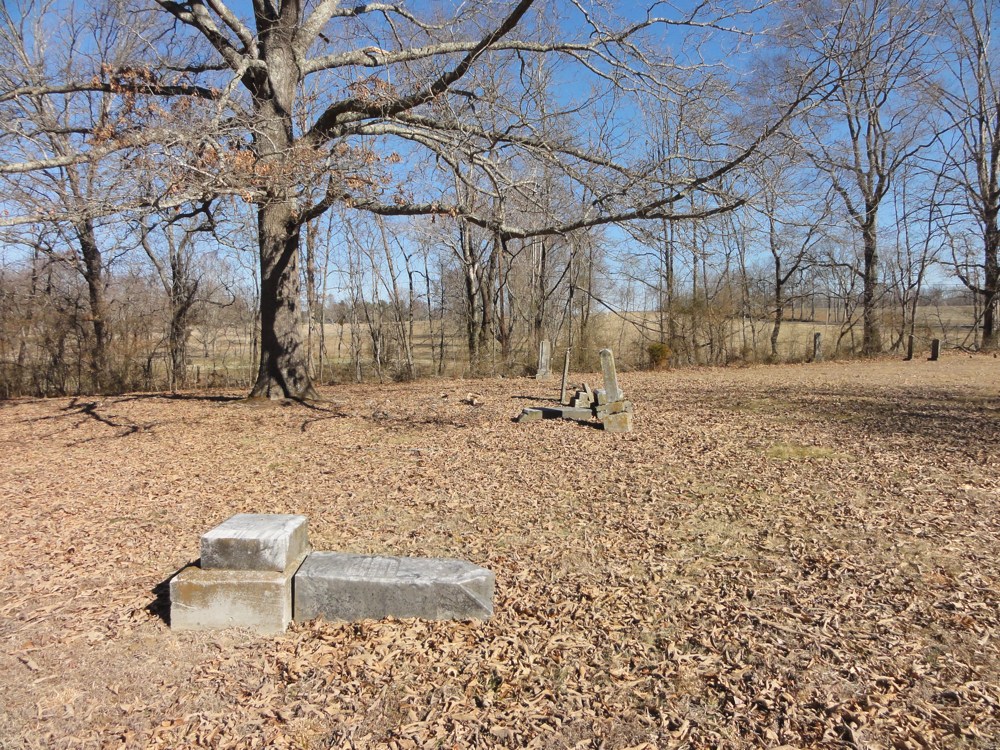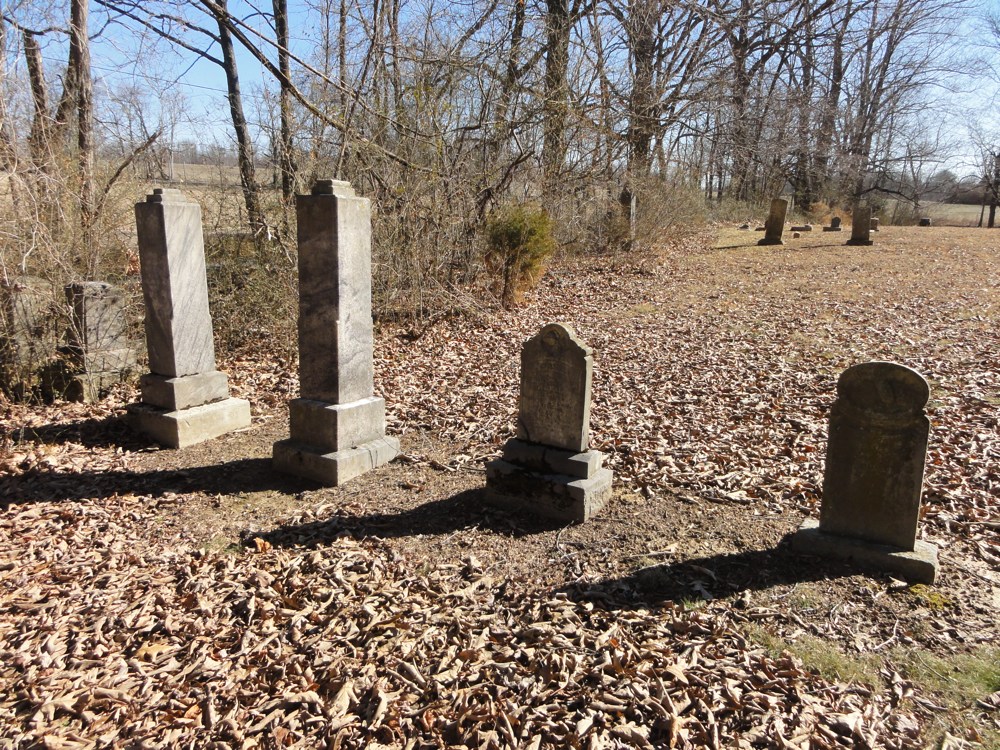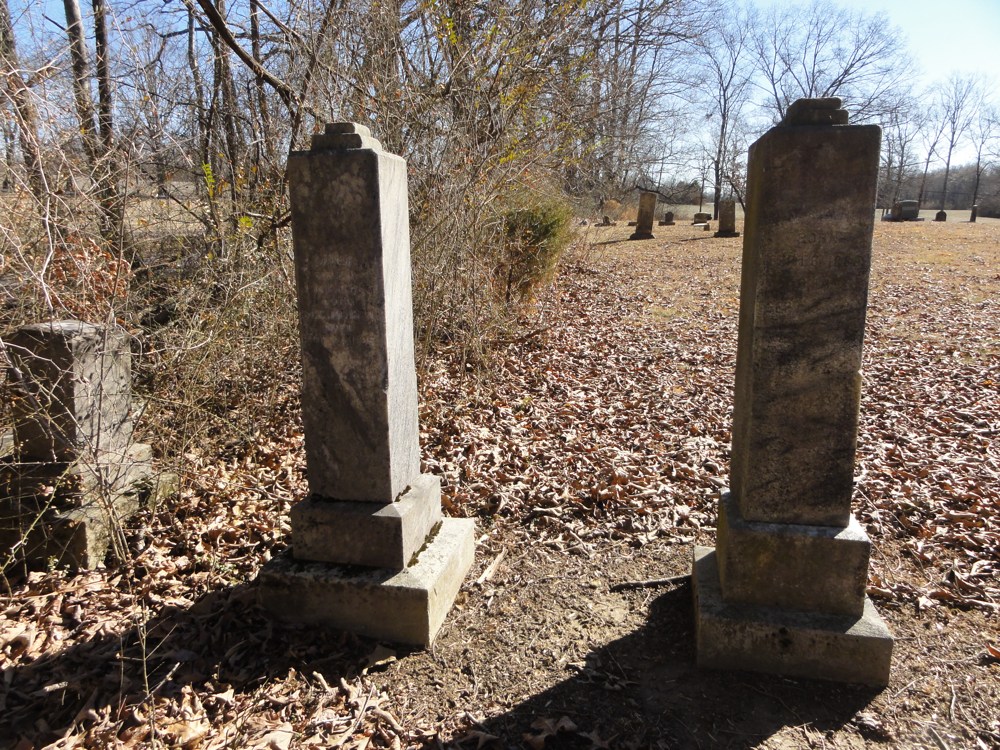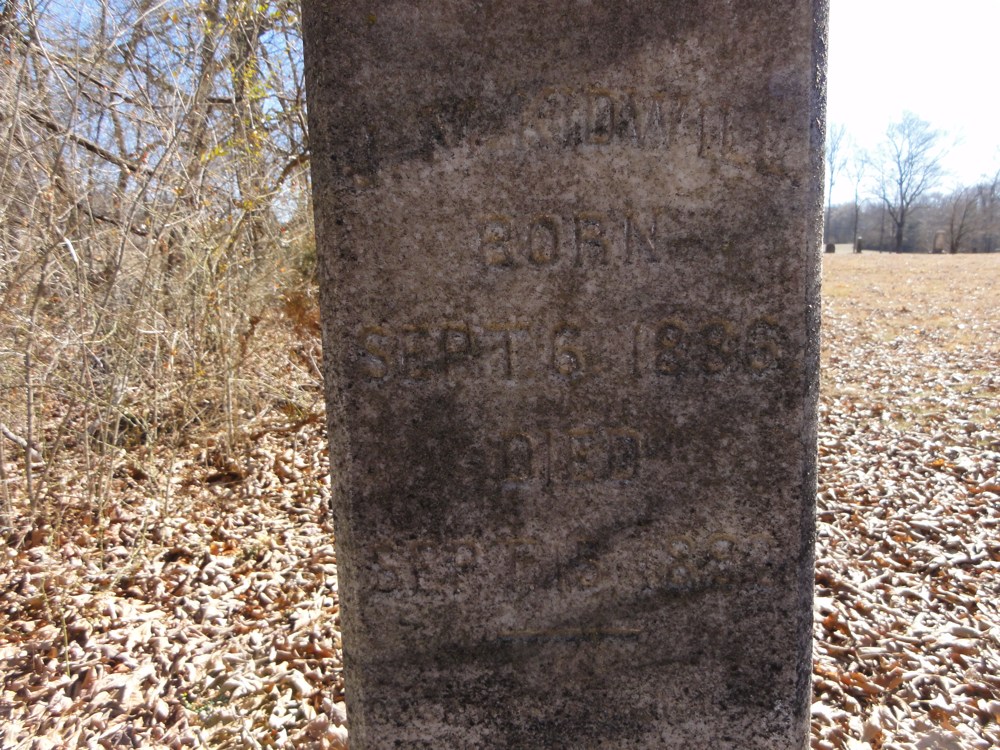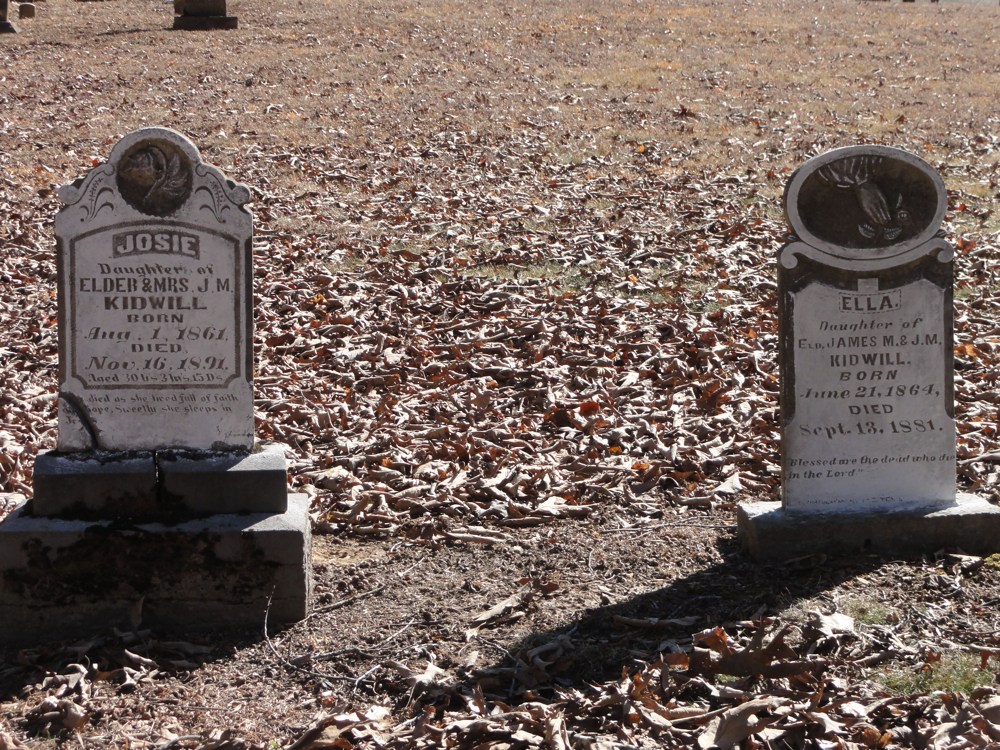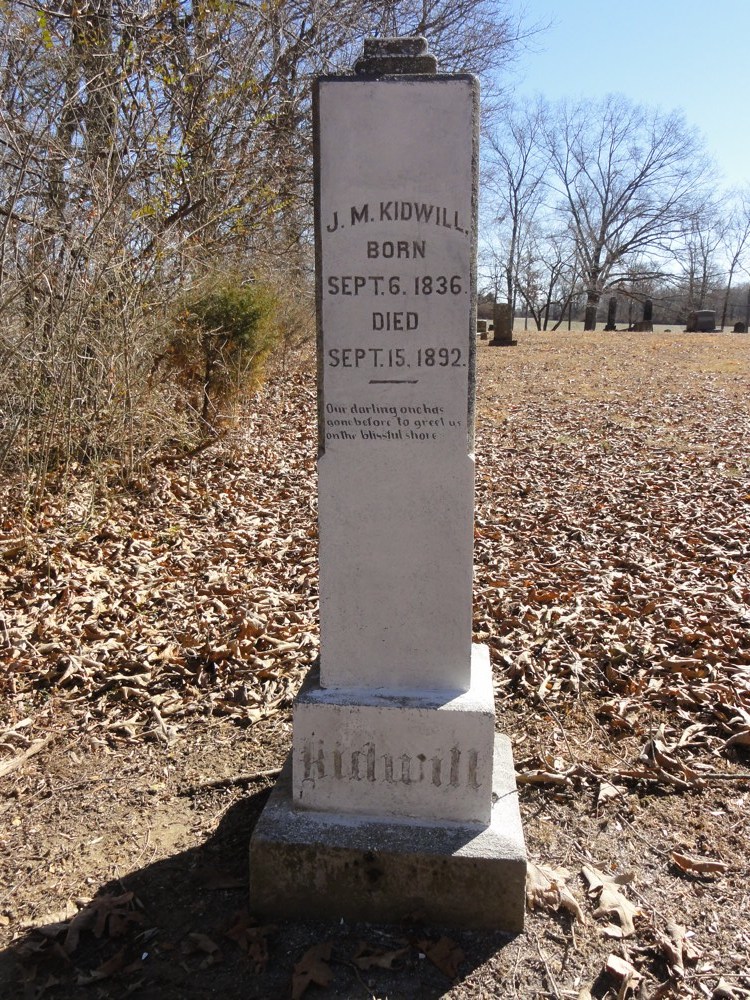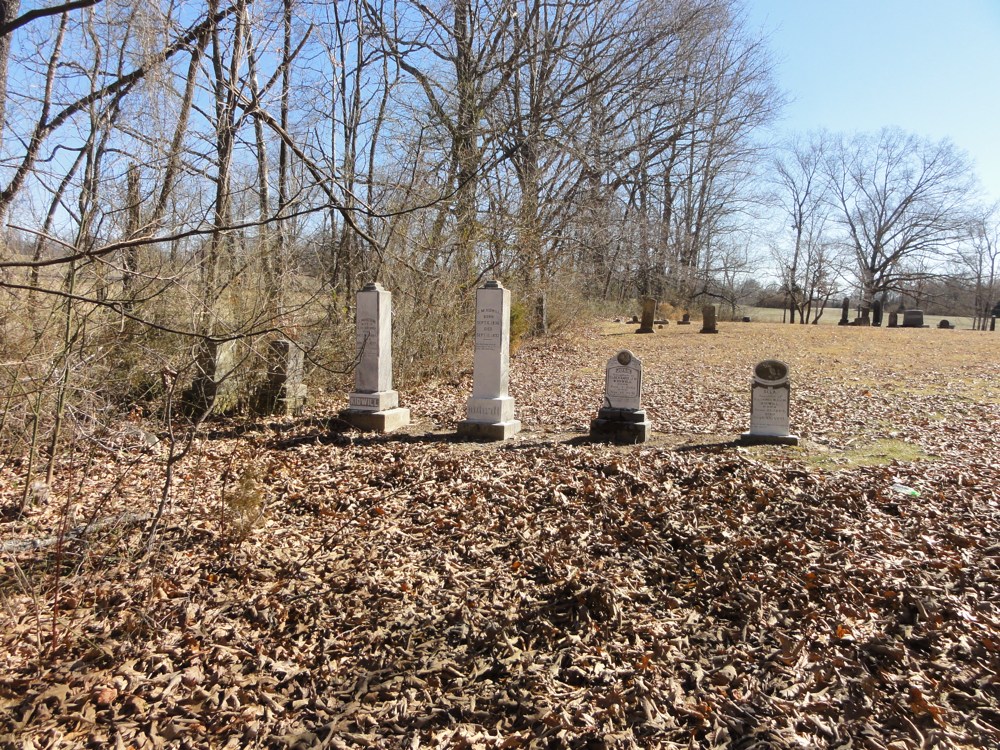James Monroe Kidwill
1836-1892
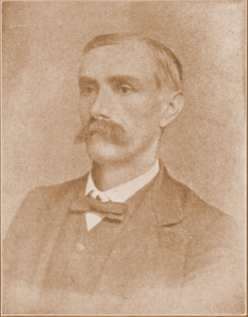
![]()
Biographical Sketch On The Life Of J.M. Kidwill
Possibly no preacher of modern times began under more unfavorable conditions to preach the gospel than did J. M. Kidwill. He was born near Alexandria, Tenn., on September 6, 1836. He was the oldest of a family of eight children-six sons and two daughters. Three of the brothers: J. M., W. T., and T. L. became preachers. His parents were Thomas J. and Susan Kidwill. His father was a farmer and worked hard to support his family. His father was a good man and trained his children to be industrious, honest, and faithful to all the duties of life. Not one of the six boys, so far as their father knew, ever swore an oath. This indicates the piety and respect which young Kidwill had for the name of God and all other sacred things.
J. M. Kidwill began the study of the Bible early in life. He carried a small Testament in his pocket and would often read it in the field while his team rested. He did not have the advantage of going to school, yet he was an educated man. He had a mind inclined to investigate and reflect upon any proposition which came to his notice. He went to the free schools, which at that time continued two or three months in the year. When he was eighteen years of age, he went to school for five months in succession. This was the longest term of school that he attended up to that time. However, he continued his studies and was soon able to teach others. He became an acceptable teacher and taught for thirteen years in Wilson, Smith, and De Kalb counties, Tennessee. He obeyed the gospel on November 7, 1860. He was twenty-four years of age at that time.
Brother Kidwill was a man of strong conviction, and lied faithfully in harmony with his conviction. He believed that carnal warfare should not be engaged in by Christians, and he refused to go to war. He evaded the conscript officer when the War between the States was being waged and, with a younger brother and another gentleman, left Tennessee and went to Kentucky. He taught school while in Kentucky. He studied Greek, and he soon learned to handle the Greek New Testament with the help of Greek lexicons. He was well acquainted with church history and had a general information on scientific subjects that were popular at that time. His sermons were on Bible subjects, and he relied wholly upon the Bible for the proof of all matter that pertained to religious subjects.
He was married to Miss Minerva Patton, at Alexandria, Tenn., on August 16, 1855. To this union seven children were born-six daughters and one son. The boy and two girls died in infancy and two died after reaching womanhood. Brother Kidwill enjoyed the company of his family and loved each member dearly. He said near the end of his life: " While my wife and children have been to me all that a family could be, I have had trials and sorrows which none can know until the day of judgment." He had been bereft of five of his children at that time. Soon after he had given up everything to preach the gospel, on returning home from a meeting he found two of his daughters sick with typhoid fever. It was not long until he was stricken with the same disease. He had no money; and he being sick, and his two daughters sick, his good wife, discouraged and despondent, expressed to her husband that she did not know what they would do. Brother Kidwill replied : "The Lord will provide." That very day a stranger called at the gate and asked for Brother Kidwill. His wife replied that he was at home, but too sick to receive company. The stranger left her a good sum of money. They never knew from whom the money came, but with deep gratitude gave thanks to God for his fatherly care.
Brother Kidwill was baptized in 1860 by Brother Caleb Sewell, Sr. He did not begin preaching, however, until 1865. He began in a humble way to make short talks after he had preached by the fireside to his family and neighbors. He talked religion in his family and studied the Bible daily. His wife was a Presbyterian when he married her and continued to remain in the Presbyterian Church until her husband began preaching. Possibly his first preaching was to his wife. It is a good place for any one to begin preaching-to preach at home both in word and in life. It was his custom to study thoroughly his lesson before preaching. Many of his friends thought that he would never become an acceptable preacher. After he had been preaching for one or two years, he filled an appointment near McMinnville, Tenn. An old and experienced preacher was present and heard his sermon, and after the services were over the elderly preacher took him behind the house and gave him the following fatherly advice: "Brother Kidwill, you are a good school-teacher, but you cannot preach. Go home and teach school and give up the idea of trying to make a preacher." Brother Kidwill criticized his own efforts and passed fair judgment on his own work. He had preached as well as he usually did, and he knew he had not made a failure. The other brother thought he had. So Brother Kidwill replied to the old brother: "I am going to preach or make a complete failure, and I am going to know it is a failure before I give it up." That year he held four consecutive meetings in that county. In the first meeting there were fifty-two additions; in the second, fourteen; in the third, seventy-seven; and in the fourth, thirty-four. Perhaps after the criticism he worked the harder, studied the more diligently, and prayed the more devoutly. This would account for his success.
Brother Kidwill was original in his style and manner of presenting a sermon. He preached much on the types of the Old Testament. He was clear, logical, and argumentative in the preparation and delivery of his sermons. He was very precise and concise in his preaching. Any one who listened could understand him, and all who understood keenly felt the force of his arguments. It was his custom to study earnestly and prayerfully every lesson that he presented. After he had been preaching for some time, he made a resolution that he would never rise before an audience to preach without first having prayerfully studied his lesson at least one hour before presenting it. It did not matter how many times he had preached that sermon, he would study it again before attempting to preach it another time. If all preachers would follow this example, there would be much more of the gospel preached with power than is now preached.
He was naturally fond of investigation and discussion of Bible subjects. He engaged in a number of debates and was ready at all times to contend for the faith once delivered to the saints. He was clean and dignified in his discussion; he was quick at repartee; he was a Christian gentleman always, and accomplished good in his discussions. His first debate was with John T. Oakley, a Baptist preacher of some note. This debate was held at Alexandria, Tenn. His next debate was with Gilbert Moffatt, a Primitive Baptist preacher. This debate was held in Warren County in 1875. His third debate was with J. H. Grime, another Missionary Baptist preacher. This debate was held in March, 1887, in Cannon County.
He held a second debate with Mr. Grime in December, 1889, at Cedar Creek, a Baptist church house, in Wilson County. He held a debate with the noted W. H. Smith, a Missionary Baptist preacher, in July, 1889, near Rome, Smith County. Again he debated with Mr. Smith in February, 1890, at Bagdad, Smith County. His debates were not mere wrangles and contentions about personalities, but they were honest efforts to present the truth in such a way as to please God and impress the hearers. All of his debates were with the Baptists. He was very familiar with the theories and claims of the Baptists and was able to refute them with the Bible.
He wrote frequently for the Gospel Advocate and sometimes for the Old Path Guide. His writings, like his preaching, were clear and forceful. John H. Nichols, a Methodist preacher, wrote a tract called " Theological Grub Ax," in which he carried on a dialogue, putting questions and answers into the mouths of both parties. The dialogue was between a Methodist and what he chose to call a " Campbellite." After the publication of this tract, Mr. Nichols stated publicly that Brother Kidwill was the man who represented the " Campbellites." Mr. Nichols represented the dialogue as true and real. Brother Kidwill denounced it as false and wrote a tract in reply, called " The Grub Ax Upset." Mr. Nichols wrote another tract in reply and called it " The Theological Pump;" and Brother Kidwill reviewed this tract, and called his tract "The Pump Reset." He wrote another tract called "The New Name."
Brother Kidwill established many churches in Middle Tennessee and preached much for many others. He preached at Dixon Springs, Hartsville, Carthage, Lebanon, Alexandria, Smithville, Sparta, McMinnville, Manchester, Murfreesboro, Nashville, and other places. Many of these churches, strong and powerful today, owe much to the labors of Brother Kidwill. All disciples in Middle Tennessee, and especially those worshiping where Brother Kidwill did so much work, ought to thank God for the life and labors of J. M. Kidwill. Most of his work was done in Middle Tennessee; however, he did some preaching out of the State. He lived for a long time in Smithville, Tenn. He was taken sick Christmas week, 1889. He continued to preach, but oftentimes was unable. Gradually he had to leave off his work, and died at his home in Smithville, September 15, 1892. No man worked harder and loved the cause of Christ better and lived more faithfully that which he preached than did Brother Kidwill.
Brother Elam wrote " The Life of J. M. Kidwill," which was published in 1893. I commend this book to all who have not read it, and especially to all young preachers. The book sets forth clearly the life of this man of God, and also gives many valuable lessons drawn from incidents connected with Brother Kidwill's life.
-From Biographical Sketches Of Gospel Preachers, H. Leo Boles, Gospel Advocate Company, Nashville, Tennessee, 1932, pages 286-291
![]()
Directions To The Grave Of J.M. Kidwill
J.M. Kidwill is buried in DeKalb County in the East Central Tennessee town of Smithville, in the Cannady Cemetery. From I-40 take Exit 273, Smithville/ Hwy. 56. (This exit is also the location of the Silver Point School where G.P. Bowser taught black students in 1913). From the exit travel south 12.5 miles south toward the town of Smithville (In Smithville this road is called North Congress Blvd. As you are coming into Smithville turn right on Church Street. Go one block (.1 mile) and turn right on Holmes Creek Rd. Go .5 miles and just past #466 Holmes Creek Rd. is the Kennedy Cemetery on the left. The cemetery corners on Holmes Creek Rd. and Golf Club Rd. (Golf course just north of cemetery). This is an old cemetery with many field stones as markers. Go into the center of the cemetery and about middle way stop the car. Look off to the north side of the cemetery, and under some trees at the edge you will see four or five graves off by themselves. This is the Kidwill plot. I visited the grave September 5, 2003, and noted that there was another tall stone off in the woods that I couldn't get to, to see what was written there.
GPS Location
35.968769,-85.817586
Accuracy To 28ft
Graves Face West
JOSIE
Daughter Of
Elder & Mrs. J.M.
Kidwill
Born
Aug. 1, 1861
Died
Nov. 16, 1891
30 Ys. 3Ms. 15D
Died As She Lived, Full Of Faith,
Hope, Sweetly She Sleeps
Note: Josie's Death Was Kidwill's Most Difficult. She Died While
Accompanying Her Sick Father To Be Of Assistance To Him On A Trip. She
Died In The Home Of Bro. John DeBow, Dixon Springs, Tennessee. Both She
And Her Father Had Been Feeble For Quite Some Time. She Never Married,
But Was A Dutiful Daughter Who Chose The Care For Her Parents As Her
Life's Work. She Died A Year Before Her Father
ELLA
Daughter Of
Eld. James M. & J.M.
Kidwill
Born
June 21, 1864
Died
Sept. 13, 1881
Blessed Are The Dead Who Die
In The Lord
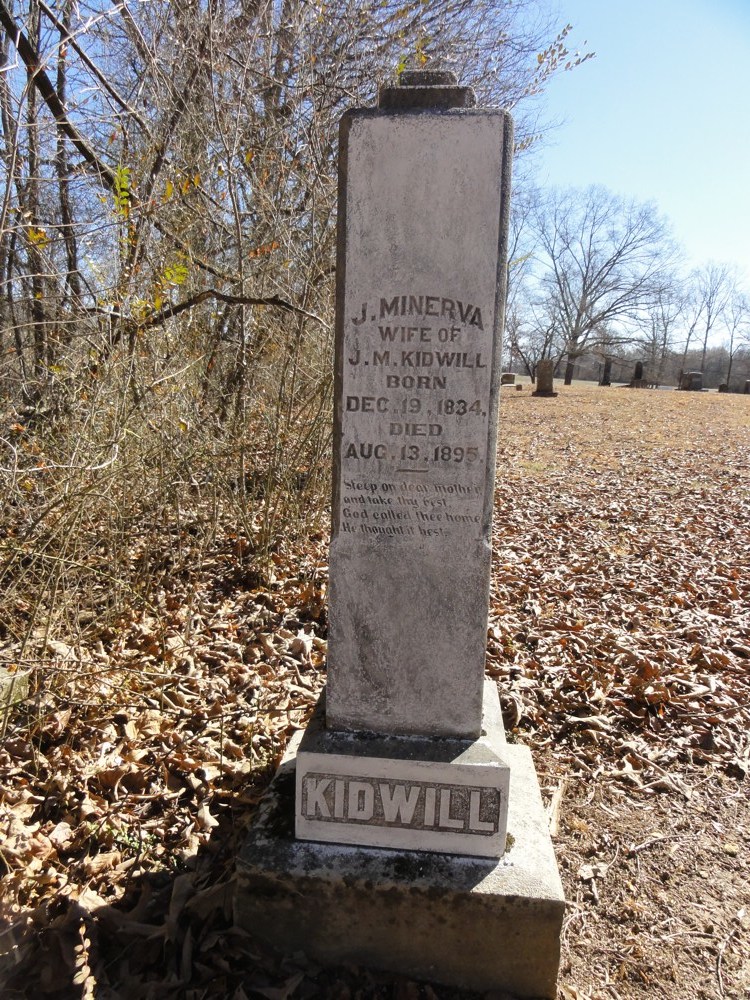
J. Minerva
Wife Of
J.M. Kidwill
Born
Dec. 19, 1834
Died
Aug. 13, 1895
-
Sleep On Dear Mother,
And Take Thy Rest,
God Called Thee Home,
He Thought It Best
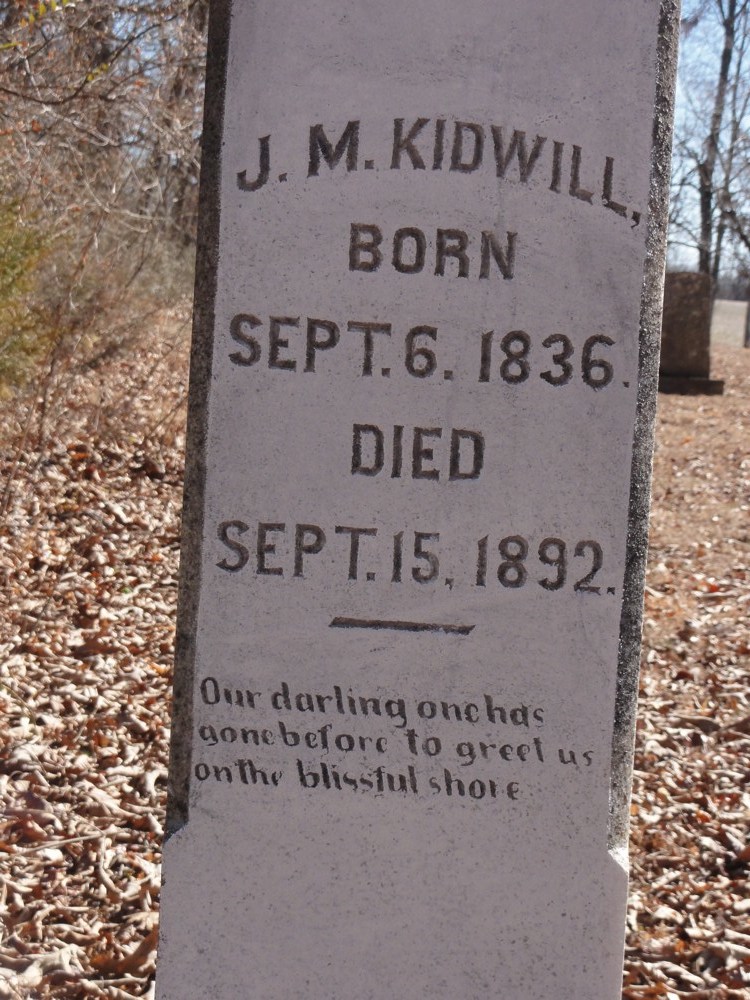
J.M. Kidwill
Born
Sept. 6, 1836
Died
Sept. 15, 1892
-
Our Darling One Has
Gone Before To Greet Us
On The Blissful Shore
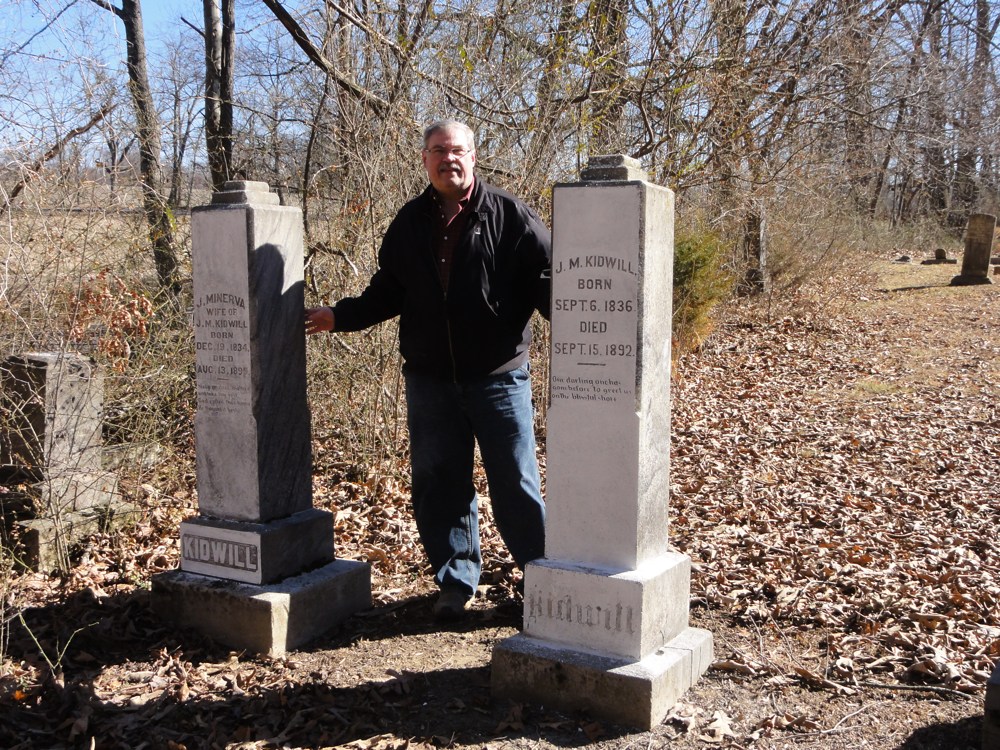
Scott Harp, web editor at the graves of J.M. Kidwell and family
Photos Taken - 02.24.2014
Thanks to C. Wayne Kipatrick for accompanying me on a trip through central and east Tennessee at the end of February, 2014. We visited several restoration sites including the graves of J.M. Kidwell. I had visited the graves in 2003, so it was nice to get back by and visit the resting place of this great family once again. Kidwell was a great gospel preacher, and one who should be remembered for his contributions to the cause of Christ.
![]()
